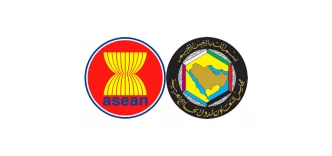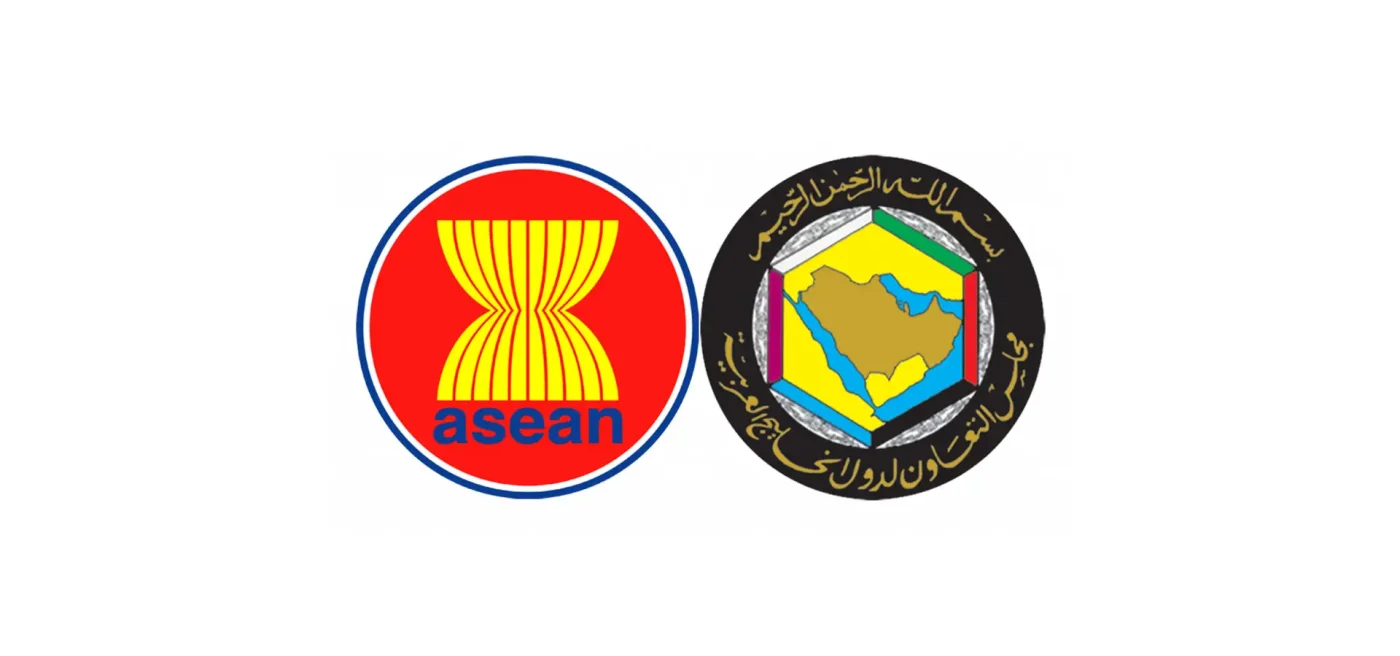Malaysia is positioning itself at the heart of a new wave of multilateral cooperation as it prepares to host the Asean-Gulf Cooperation Council (GCC) Summit next Tuesday in Kuala Lumpur. Prime Minister Datuk Seri Anwar Ibrahim has expressed a clear intent to leverage this platform to strengthen ties not only with the six economically vibrant Gulf nations but also with major global powers like China and the United States. As geopolitical tensions simmer and economic interests converge, the summit represents a critical opportunity for Malaysia to navigate complex international relationships while asserting its independent stance.
A Platform for Multilateral Projects
The upcoming summit, which will see leaders from Saudi Arabia, the United Arab Emirates, Bahrain, Qatar, Kuwait, and Oman arrive in Kuala Lumpur on Monday, is more than a ceremonial gathering. Anwar emphasized during a media briefing in Putrajaya on Wednesday night that the event could catalyze collaborative projects, potentially on a sub-regional or regional scale. “We should use this occasion to try to build up some projects that involve some countries, so that we can work together” he said, reflecting on recent discussions with Saudi Crown Prince Mohammed bin Salman and Qatar’s Emir Sheikh Tamim bin Hamad Al Thani.
These discussions revealed a shared sentiment among GCC leaders to deepen ties with China, despite their historically close relationship with the United States. Anwar noted that China has lent its support to the summit, with Premier Li Qiang expected to attend. This convergence of interests highlights the delicate balancing act Malaysia must perform as it seeks to expand its diplomatic and economic horizons without alienating key partners.
Navigating US-China Rivalry
At the heart of Malaysia’s diplomatic strategy is a pragmatic approach to the intensifying rivalry between the United States and China. Anwar was candid about the pressures Malaysia faces, recounting a conversation with former US Secretary of State Antony Blinken during last November’s Asean Summit in Laos. “I said Secretary Blinken, we are closer geographically to China, we can’t help it, it is there, closer” Anwar recalled. “You have to give me a reason why we cannot be close.”
He underscored Malaysia’s significant trade and investment ties with the United States while rejecting any attempts to dictate the country’s economic direction. “What I can’t accept is the tendency to dictate. You must allow for countries to decide in their best interest” he said. Anwar’s stance reflects a broader sentiment among smaller nations in Southeast Asia, many of which are caught between the economic allure of China and the security and market access provided by the United States.
Commenting on the US-China dynamic, Anwar suggested that the rivalry is sometimes exaggerated. He pointed out that both powers are likely to prioritize pragmatic economic considerations over ideological conflicts. “President Donald Trump will make a final decision that guarantees economic vibrancy of the United States, and similarly, China would want to continue that sort of economic engagement with the United States, because it is a huge market” he noted. For Malaysia, this offers a window to benefit from both relationships, provided it can maintain a neutral and self-determined path.
Regional Disputes and Bilateral Ties
While global power dynamics dominate much of the discourse around the summit, Anwar also addressed regional challenges closer to home. He acknowledged ongoing border disputes not only in the South China Sea with China but also with neighboring countries like Singapore, Thailand, the Philippines, Vietnam, Brunei, and Indonesia. “We have problems with Singapore, Thailand, the Philippines, Vietnam, Brunei, and Indonesia. Why not bring these issues up?” he asked rhetorically during the briefing.
Despite these tensions, Anwar highlighted the strength of Malaysia’s bilateral relationships, citing the Johor-Singapore Special Economic Zone (JS-SEZ) agreements signed earlier this year as evidence of robust ties with Singapore. This cooperative spirit is something Malaysia hopes to replicate with other Asean partners and beyond, using platforms like the Asean-GCC Summit to foster dialogue and mutual benefit.
Economic Opportunities with the GCC
The economic dimension of the summit cannot be understated. The GCC nations, with their substantial wealth and strategic importance in the Middle East, offer significant opportunities for trade and investment. Anwar noted their close ties with the United States, suggesting that Malaysia could “make use of it” to strengthen its own economic position. The GCC’s interest in closer engagement with China also aligns with Malaysia’s broader strategy of diversifying its economic partnerships.
For Malaysia, which has seen steady growth in trade with both the Middle East and East Asia, the summit could pave the way for joint ventures in sectors like energy, infrastructure, and technology. While specific projects have yet to be announced, the presence of high-level leaders from both Asean and the GCC signals a strong intent to explore new avenues for collaboration. Analysts suggest that Malaysia could position itself as a gateway for GCC investments into Southeast Asia, leveraging its strategic location and established trade networks.
The Humanitarian Dimension: Gaza in Focus
Beyond economics and geopolitics, Anwar signaled his intention to raise pressing humanitarian issues at the Asean Leaders Retreat on Monday, ahead of the main summit. The ongoing conflict in Gaza, where negotiations for peace continue amid persistent violence, is likely to be a key topic. “It is sickening. While negotiations are taking place, the bombings continue” Anwar said, expressing frustration at the global community’s inability to halt the crisis. “As I have said, we have actually lost our humanity in a world full of contradictions.”
Malaysia has been vocal in its support for a ceasefire, aligning with a broader Asean consensus on the issue. Anwar noted that while the country has done what it can, some expect more decisive action. His comments come against the backdrop of recent threats by Britain, Canada, and France to impose sanctions on Israel if it does not halt military operations in Gaza and ease aid restrictions. Whether Malaysia will push for a stronger collective stance within Asean remains to be seen, but Anwar’s resolve to address the issue underscores the summit’s broader relevance to global challenges.
Looking Ahead: Malaysia’s Role in a Shifting World
As the Asean-GCC Summit approaches, Malaysia finds itself at a crossroads of opportunity and challenge. The event offers a chance to forge new alliances, deepen economic ties, and assert a more prominent role on the global stage. Yet, it also requires navigating the competing interests of major powers, managing regional disputes, and addressing humanitarian crises that resonate far beyond Southeast Asia.
Anwar’s leadership will be tested as he seeks to balance these diverse priorities. His emphasis on independence, pragmatism, and multilateral cooperation suggests a vision for Malaysia as a bridge between East and West, between emerging economies and established powers. Whether this vision translates into concrete outcomes will depend on the discussions and agreements that emerge from the summit.
For now, the eyes of the region and beyond are on Kuala Lumpur. As leaders gather against the iconic backdrop of the Petronas Twin Towers, the stakes could not be higher. The question remains: can Malaysia turn this moment of convergence into a lasting legacy of collaboration and progress?
















